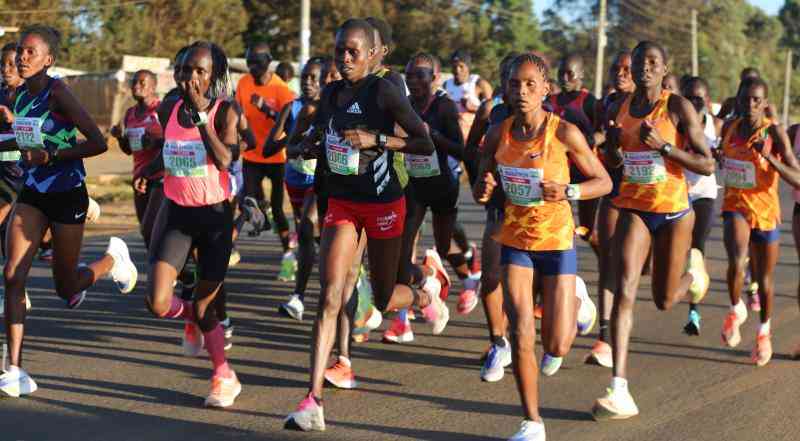
Treasury Cabinet Secretary Henry Rotich’s decision to exponentially increase taxes on gambling and betting draws parallels with early endeavours the world over to outlaw production and consumption of recreational drugs as cannabis.
It may sound extreme. However, gambling and betting are notoriously addictive. Efforts to resolve social effects that come as a result of drug use and gambling tend to be emotive.
Canada is one of the foremost countries in the world to outlaw cannabis by putting it in the same category as opium and psychotropic substances. A 2002 Canadian Senate committee report, titled Cannabis: Our Position for a Canadian Public Policy, notes that “early drug legislation was largely based on a moral panic, racist sentiment and a notorious absence of debate.”
By Korir’s own admission, slapping a 50 per cent tax is meant to check the resultant “negative social effects”. Now that is the moral panic coming from a total absence of debate.
Previously, the only debate, without public participation, was one sponsored by Gem MP Jakoyo Midiwo in Parliament.
Absence of debate
Just when gamblers thought they had heard the worst from the rubble-rousing Midiwo who was proposing an increase on betting taxes on ‘gross’ gaming revenues to 15 per cent, lottery tax on turnover to 20 per cent and gaming tax to 20 per cent, in comes the gun-slinging Rotich with proposals that make Midiwo’s sound like child play.
According to the CS, Jakoyo’s worries needed a higher dosage. “The betting and gaming have become widespread in our society in an environment that is inadequately regulated. Its expansion is beginning to have negative social effects in particular on the young and vulnerable members of our society. I, therefore, propose to raise taxes for betting, lottery, gaming and competition from the current rates of 7.5 per cent, five per cent, 12 per cent and 15 per cent, respectively to a uniform tax rate of 50 per cent for all categories.”
There is a lot that is wrong with the thinking and action by Rotich and Co. It is mind boggling that a tax rate would rocket from 7.5 per cent to 50 per cent and that without data to back it up, and that is why I conclude it is an emotional fit.
While there are documented testimonies of Kenyan’s to have won millions via betting and gambling, Rotich will struggle to put on the table concrete evidence of “negative social effects.”
Question is; has any State agency taken betting companies to task for failing to promote responsible betting or gambling? There is eveidence thatbetting companies have pumped millions into sports, an area that is neglected by the Government.
Rotich holds a master’s degree in Public Administration from the Harvard Kennedy School, Harvard University, USA and he definitely knows that higher taxes puts off investors and they will simply walk to your neighbours.
Online betting
The companies that will decide to stay will adjust to the market and will not offer best prices. Worse still, they will scale back their CSR activities and will barely sponsor any initiatives. What is not known to the public is that the taxman has in the last two years raked in billions of shillings from betting companies, something that must have whet the appetite of Treasury to go for more while hiding behind “negative social effects.”
Higher taxation on betting and gambling would effectively drive gamblers to unlicensed operators just like most Kenyans have resorted to killer brews because they cannot afford safer brands. It is also hard to imagine that the Treasury CS is not alive to the fact that with the likes of Mpesa, PayPal, PesaPay , gamblers can place bets abroad. With the internet, it is very easy to bypass the roadblocks the Treasury thinks can protect the vulnerable. From Jakoyo’s reaction, it is evident his proposals were taken out of context.
Rotich and the Ministry of Interior need to come up with a legal framework that regulates the gaming and betting industry with emphasis on protecting the vulnerable. They should look to the United Kingdom which has hundreds of betting and gambling firms that are regulated and still pad the exchequer.
Stay informed. Subscribe to our newsletter
With proper regulation and proper reporting you get enhanced responsible gambling and a level playing field for all that ensures customers are protected. In any case, gambling is a choice and the CS Rotich should allow the eagle to perch and the kite too. But imposing a blanket punitive tax is refusing to think through the obvious fact that international gaming firms do not need Kenya to make their money.
— Toskin is the Standard Group Sports Editor [email protected]
 The Standard Group Plc is a
multi-media organization with investments in media platforms spanning newspaper
print operations, television, radio broadcasting, digital and online services. The
Standard Group is recognized as a leading multi-media house in Kenya with a key
influence in matters of national and international interest.
The Standard Group Plc is a
multi-media organization with investments in media platforms spanning newspaper
print operations, television, radio broadcasting, digital and online services. The
Standard Group is recognized as a leading multi-media house in Kenya with a key
influence in matters of national and international interest.
 The Standard Group Plc is a
multi-media organization with investments in media platforms spanning newspaper
print operations, television, radio broadcasting, digital and online services. The
Standard Group is recognized as a leading multi-media house in Kenya with a key
influence in matters of national and international interest.
The Standard Group Plc is a
multi-media organization with investments in media platforms spanning newspaper
print operations, television, radio broadcasting, digital and online services. The
Standard Group is recognized as a leading multi-media house in Kenya with a key
influence in matters of national and international interest.










